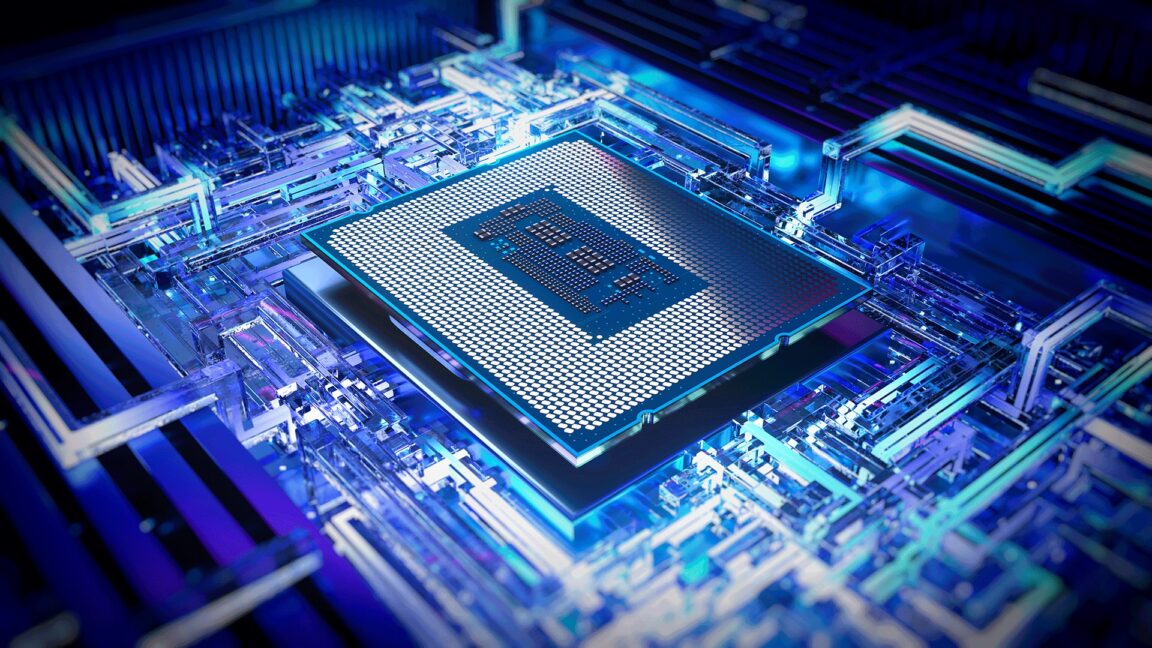One frustrated customer wants to force Intel to pay untold millions in damages, claiming the company deceptively marketed faulty 13th- and 14th-generation CPUs as "enabling amazing experiences to happen on the PC," when instead products were prone to crashes and blue screens.
In a proposed class action, a New York man, Mark Vanvalkenburgh, said that he regretted falling for Intel's marketing of its 13th-gen CPU as "the world’s fastest desktop processor" capable of delivering "the best gaming, streaming and recording experience" available today.
He and possibly millions of others "reasonably" believed both the 13th- and 14th-gen CPUs would "perform as advertised"—only to discover they'd purchased a reliably "unstable" product triggering "random screen blackouts and random computer restarts" that PC Mag warned perhaps caused "permanent" CPU damage.
If Vanvalkenburgh and other class members had known about the product defects, they wouldn't have paid a premium price for Intel's CPUs, the complaint said. Class members include anyone who purchased the defective products across the US, as well as a sub-class pursuing additional claims that includes any New York-based buyers.
It's unclear how many class members there are since Intel maintains that not all products sold were defective. Until discovery identifies all class members, the complaint casts a wide net, estimating that "based on Intel’s sales, there are hundreds of thousands or millions of proposed class members."
Vanvalkenburgh alleged that Intel became aware of the defects by "late 2022 or early 2023." Not only did Intel allegedly see "unusually high" return rates on the CPUs within months of the 13th-gen release, but also media reports throughout 2023 and 2024 confirmed outcry from users remained consistent, Vanvalkenburgh alleged.
"Intel had a duty to disclose the defect because the defect is material and Intel possessed exclusive knowledge of it," his complaint said, citing pre- and post-release testing that Intel conducts that likely also flagged the issues. "Only Intel had access to those test results. Intel also monitors return rates, and reports of defects. Intel has exclusive knowledge of that information," and allegedly failed to share it with customers.
"Had Intel disclosed the defect, including through advertising, press releases, the Product packaging, or the initial setup process, Plaintiff and class members would not have purchased a Product, or would have paid substantially less for it," Vanvalkenburgh's complaint said.
According to Tom's Hardware, "Intel’s 13th Generation Raptor Lake processors have a return rate four times higher than that of the previous generation," and "14th Generation Raptor Lake Refresh chips also have return rates thrice as high as the 12th Generation Alder Lake processors." But instead of alerting the public to the defects, Vanvalkenburgh's complaint alleged, Intel continued touting the processors as providing the ultimate desktop experience for serious gamers and people with "the most demanding of multitasking workloads" seeking speed, efficiency, and reliability.
Vanvalkenburgh alleged that Intel misled customers because Intel wanted to protect its brand and seek unjust enrichment. According to his complaint, Intel knows "consumers are willing to pay more for a reliable processor that runs stably, without failing or crashing frequently." By failing to alert customers to known defects, Intel's alleged deceptions increased demand for its CPUs, spiking sales into the millions, while its customers paid hundreds for processors and allegedly "sustained an economic injury."
"Reasonable consumers do not expect that the Products will crash and fail at high rates, or that running the Products will damage the Products themselves," Vanvalkenburgh's complaint said, noting that a patch Intel later provided failed to fix the issue.
Vanvalkenburgh is hoping a jury will agree that Intel deceived customers and order an injunction preventing any future misconduct like misleading advertising or failure to disclose defective products.
If the class action is certified, Intel could owe extensive damages, potentially paying hundreds of millions in a loss. Because Vanvalkenburgh alleged that "Intel’s fraudulent concealment was malicious, oppressive, deliberate, intended to defraud" him, he's seeking "an assessment of punitive damages in an amount sufficient to deter such conduct." That's on top of requests for maximum statutory damages for allegedly unfair and deceptive practices and disgorgement for alleged unjust enrichment.


